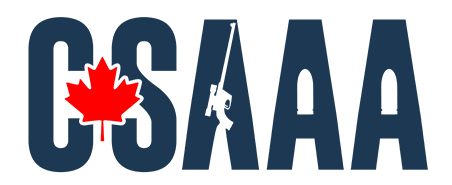OTTAWA, ON, November 8, 2017–Steve Torino, President of the Canadian Shooting Sports Association (CSSA) recently testified before the Foreign Affairs Standing Committee on Bill C-47.
Bill C-47 is a legislative package that will enable the government of Canada to enter the Arms Trade Treaty. According to Tony Bernardo, Executive Director of the CSSA, C-47 codifies a number of practices the Canadian government has been doing for years but opens the door to the possibility the United Nations could be used as an excuse to resurrect the extinct Long Gun Registry.
CSSA brought its concerns to the federal government. CSSA President, Steve Torino, testified to the House of Commons Standing Committee on Foreign Affairs and International Development to outline the concerns its membersh have regarding the implementation of this bill and more importantly, the error of entering the Arms Trade Treaty.
———-
Standing Committee on Foreign Affairs and International Development
Thursday, November 2, 2017
Mr. Steve Torino (President, Canadian Shooting Sports Association): Thank you Mr. Chairman and members of this committee for inviting me to comment on Bill C-47 and to answer any questions I can in this regard. I would also like to present some relevant background information which may be pertinent to this bill.
I am president of the Canadian Shooting Sports Association, and I chaired the Firearms Advisory Committee for the Liberal government from 1996 to 2006, and co-chaired the Firearms Advisory Committee for the Conservative government from 2006 to 2014. I was also an advisor to the Canadian delegation to the United Nations on the Arms Trade Treaty and related programs from 2006 to 2014.
The Arms Trade Treaty covers not only conventional arms used in conflicts, but civilian legal arms, ammunition and related parts and accessories as well. Since Bill C-47 contains amendments to the Export and Import Permits Act, allowing the accession to the Arms Trade Treaty, it should be stated that Canada is basically a nation of importers of these products, and that any amendments to current policies and practices can have an impact on this $5 billion per year industry and its clients – the end-user.
CSSA members are concerned with possible negative effects from the implementation of the Arms Trade Treaty and Bill C-47, including a possible curtailment of exports to Canada of currently available civilian firearms, ammunition and related parts and accessories. Canada’s annual imports of civilian firearms, ammunition, parts, and accessories exceeds $400 million as per Statistics Canada. In addition, there is concern in the firearms community of a possible return to a firearm and ammunition registry, alluded to in Article 12 of the Treaty.
The inclusion of brokering into Bill C-47 appears to be a major amendment to the Export and Import Permits Act and the Criminal Code. To the best of our knowledge, there are no illegal brokers operating in Canada who would be affected by this amendment, and all legal brokers in our opinion are in compliance with Canadian standards. So the thought arises as to what events and subsequent consultations have occurred in this regard which would lead to this amendment.
Canada’s rules regarding the import and export of conventional arms and small arms and light weapons already exceed the ATT guidelines. Canada’s practices for export are well-established. Canada’s import and export controls exceed UN treaty requirements and are in line with those of our principal allies and partners in the major export controls regimes. It is our experience that Canada’s export controls officials are very involved in analyzing each proposed transfer.
Much of the balance of Bill C-47 seems to refer to codifying current policies and practices or creating modifications thereto.
Current world conflicts raise questions as to the efficacy of the controls in the Arms Trade Treaty, when a myriad of weapons appear in the hands of insurgents who are labelled as undesirable to peace in the affected regions. As well, the source of such weapons used in the present series of “terrorist” attacks worldwide pose similar queries.
The current Arms Trade Treaty was supposed to be passed by consensus. Yet when the consensus could not be reached in April of 2013, it was passed by simple majority vote in the UN General Assembly. And in its current version, section 20 of the Arms Trade Treaty clearly states that any future changes to the treaty will be passed by a 75% majority of the state parties present for the vote.
This simple majority vote by the state parties could change Canada’s current working policies, putting decisions in the hands of state parties, who, in some cases, have serious conflict issues of their own, and who could possibly interpret any proposed changes to the Arms Trade Treaty in the light of their own issues. This interpretation could, and possibly might, have some unintended and unwanted consequences for Canada, since our controls far exceed those of most state parties.
When Canada enters this treaty, and I gather it will, we would be subject to any changes made by other nations without much say on our part in the final outcome. This can be viewed as not necessarily the best situation to maintain our decision-making abilities in a sovereign Canada.
It is our recommendation to include language in Bill C-47 that would remove the spectre of this legislation creating a future firearm registry, in keeping with the commitments of this government.
Thank you for your time and consideration.

